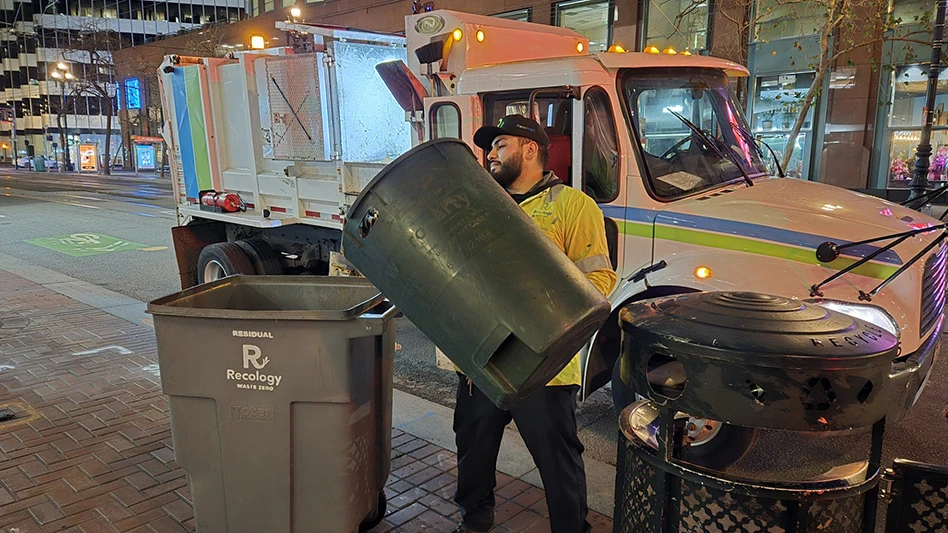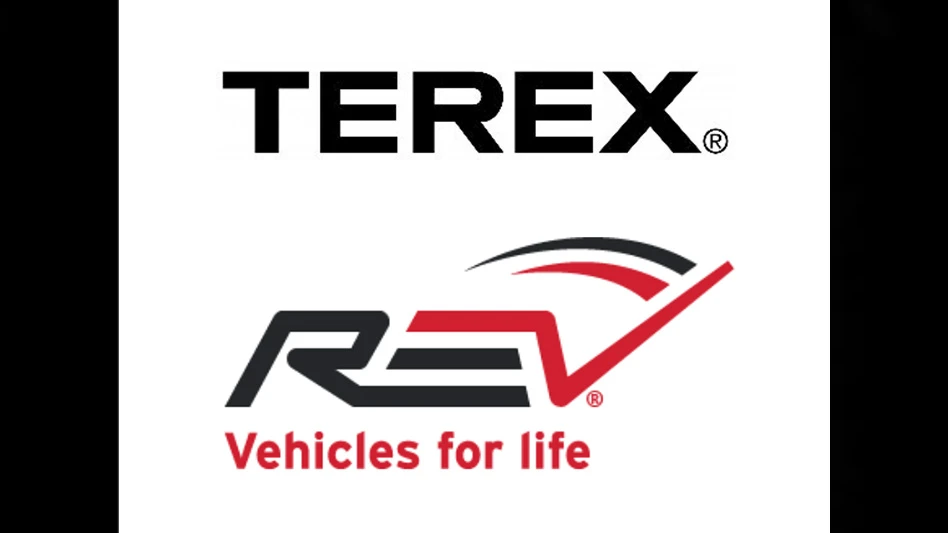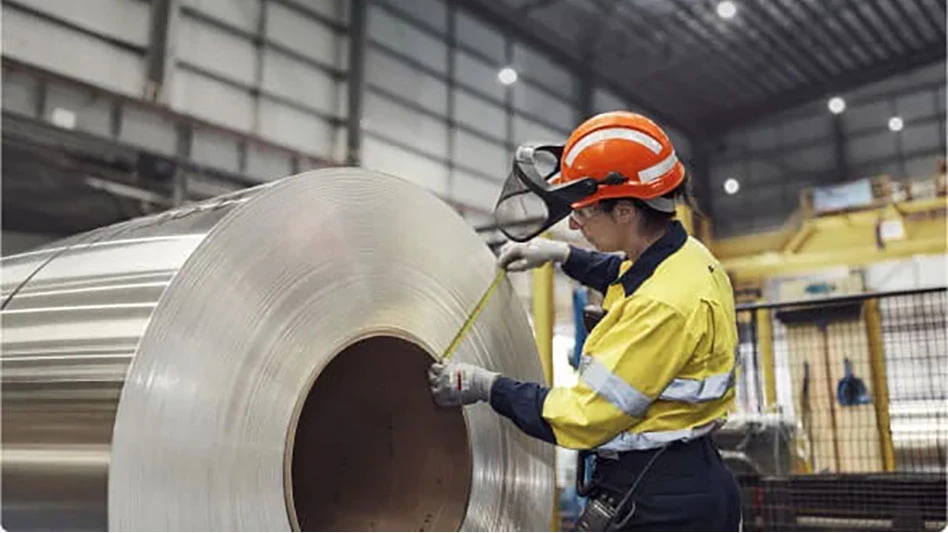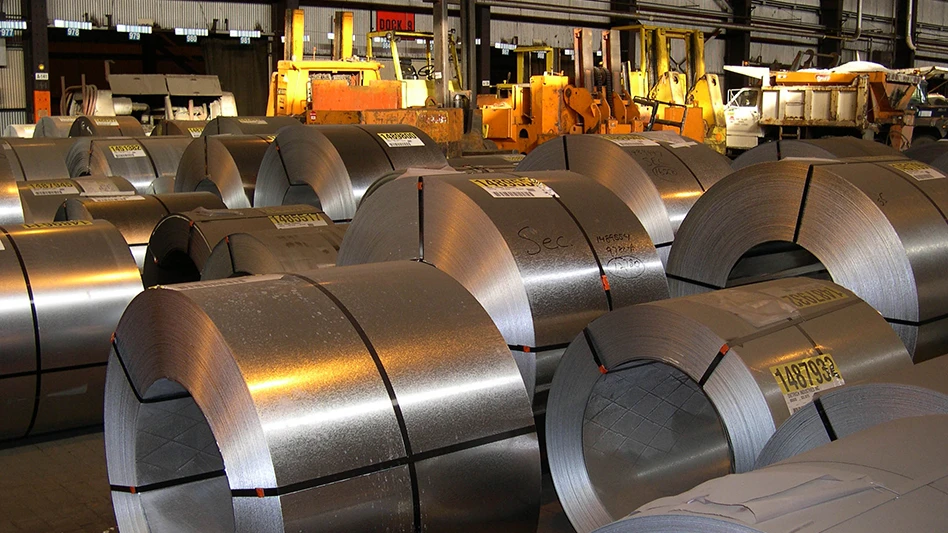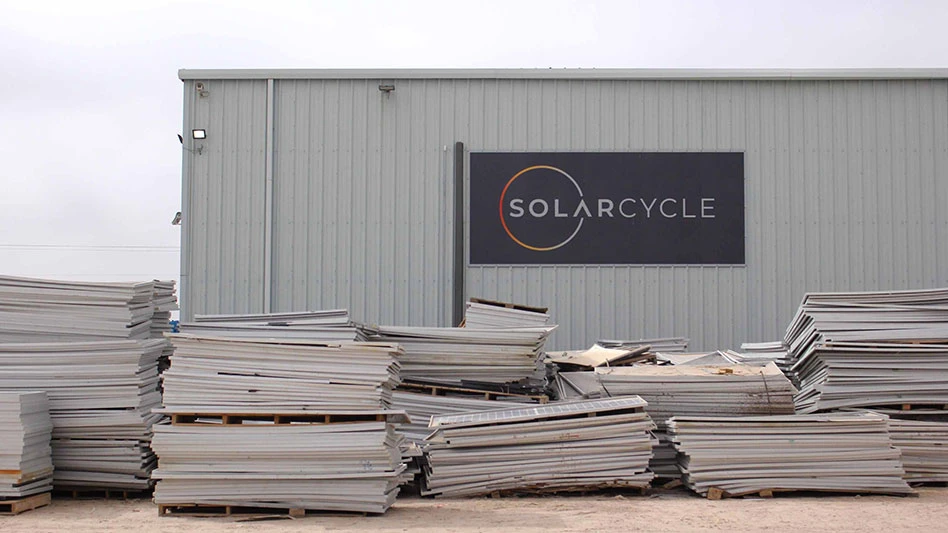
Photo courtesy of Solarcycle
Houston-based Engie North America, which describes itself as an energy company focused on long-term, efficient carbon-reducing solutions, says it will pilot a new precycling provision to incorporate solar panel and project component recycling into initial agreements at four projects. The approach, which is designed to improve Engie’s circularity, was developed in cooperation with solar panel recycling company Solarcycle, which is based in Mesa, Arizona.
RELATED: Solarcycle partners with RWE Clean Energy to recycle solar panels
The precycling provision incorporates recycling into power purchase agreements and helps developers incorporate end-of-life material recycling at the start of the project’s life cycle, Solarcycle says, adding that this is especially relevant for energy buyers focused on project circularity and sustainability goals.
The agreements ensure that roughly 1 million panels from 375 megawatts (MW) of projects across the Midwest will be recycled when they reach end of life. By doing so, Solarcycle estimates the company will divert 48 million pounds of material from landfills and avoid some 33,000 tons of carbon emissions. Additionally, to the maximum degree possible, all construction waste and system components will be recycled.
These initial projects are expected to be completed over the next couple of years, the partners say, and will add to the more than 12 gigawatts of wind, solar and battery storage operated by Engie in North America.
“We are delighted to bring this innovative approach to life,” says Caroline Mead, senior vice president of power marketing at Engie North America, says. “Our collaboration with Solarcycle demonstrates the shared commitment we have to the long-term sustainability of our industry.”
The companies say their collaboration means that the solar panel and system components on these projects will have full traceability to ensure circularity goals are met and that materials are returned to the domestic supply chain to help manufacture the next generation of clean energy products. Solarcycle says its advanced tracking capabilities enable it to guarantee that every panel on these projects is recycled and that the recovered material is returned to the supply chain.
“Engie’s precycling provision sets a new precedent for the utility-scale solar industry by proving that circular economy principles can be achieved without complex regulatory intervention and in a way that doesn’t require an upfront payment,” Jesse Simons, Solarcycle co-founder and chief commercial officer, says. “We’re happy to work creatively with leaders like ENGIE to support their commitment to circularity, domestic energy, and sustainability.”
Solarcycle operates recycling facilities in Odessa, Texas, and Mesa. Late last year, the company announced it would be building a new 255,000-square-foot recycling facility in Cedartown, Georgia, that will have the capacity to recycle and recover materials from 10 million solar panels per year, enough to process an estimated 25 percent to 30 percent of the retired solar panels in the U.S. by 2030. Solarcycle says the Georgia plant, which will be adjacent to a solar glass manufacturing plant the company announced it would build in early 2024, initially will recycle 2 million solar panels per year, scaling with growing market demand for end-of-life solar services and domestic solar supply.
Latest from Recycling Today
- Containerboard, boxboard production down in 2025
- VTE names chief commercial officer
- Supra Elemental Recovery Inc. launches with goal to recover high-purity critical minerals
- Commodities firms part of critical minerals ‘vault’ project
- BIR submits concerns about aluminum trade restrictions
- Recycling Europe backs regional preference policy
- SMA announces board election results
- Volvo CE adds to Rudd Equipment’s territory

